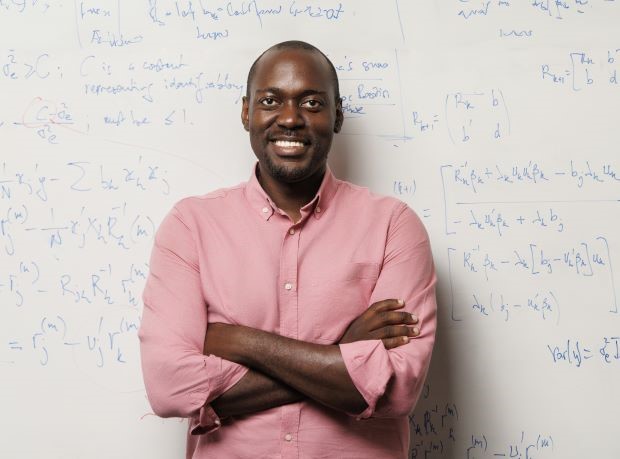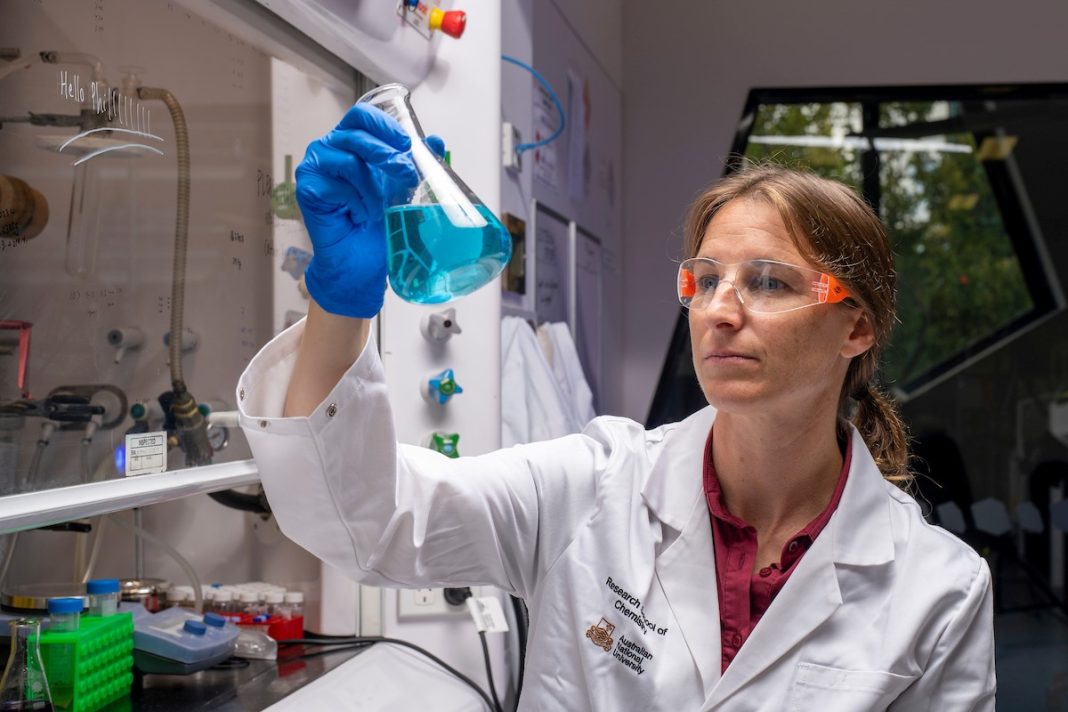A chemist from the Australian National University (ANU) has been awarded a prestigious fellowship to develop life-saving medical therapies.
Professor Lara Malins from the ANU Research School of Chemistry is one of two new Snow Medical Research Fellows for 2024. Her research pioneers advances in chemical biology and peptide synthesis, and could unlock new pathways in drug discovery and development.
The Snow Medical Research Foundation, founded by Canberra businessman and philanthropist Terry Snow, aims to develop the next generation of biomedical research leaders. Each fellowship offers $8 million over eight years. So far, the Foundation has supported 13 Fellows and committed $117 million to their work.
The other new Fellow is Associate Professor Loic Yengo from the University of Queensland. His expertise in statistical genomics and human genetics could offer new insights into disease prevention and treatment.
“It’s an incredible honour to be selected as one of this year’s Snow Fellows,” Professor Malins said.
“I’m joining a framework of fantastic and talented researchers. I think the appeal of this program to me and to my research group is the idea that medical research is the focus.
“As an organic chemist, I like to build molecules. And the truth is if you don’t have new molecules, you don’t have new medicines. We want to know how we can best use our chemistry tools to benefit humanity. Ultimately, I’m just excited to get into the lab.”
Professor Malins’s goal is to fine-tune naturally occurring chemical compounds and re-deploy them as powerful new therapies for human illnesses.
Alongside her ANU team, Professor Malins hopes to unleash the therapeutic capacity of peptides, or short chains of amino-acids, a “largely untapped reservoir” when it comes to medicinal chemistry.
“As structural relatives of proteins, peptides are biological powerhouses, but while our understanding of them is growing, clinical progression has been limited due to the challenges in synthesising and optimising them in the lab,” Professor Malins said.
“The specific compounds we’ll be looking at have considerable potential as next-generation medicines – including peptide-based cancer therapies. This investment from the Snow Medical Research Foundation will help fuel the drug discovery pipeline and ultimately, enhance our ability to treat human disease.”
Professor Malins will also use her fellowship to continue her work on new antimalarials and antibiotics.
“Nearly 100 years after the discovery of penicillin, we’re on the brink of a ‘post-antibiotic’ era, with rising levels of bacteria resistant to even our last resort antibiotics,” she said.
“Studies suggest that global antimicrobial resistance will lead to approximately 10 million deaths and an economic cost of $US100 trillion per year by 2050. To avoid repeating the cycle of antibiotic development and resistance, we need to look at new avenues.”
Tom Snow, Chair of Snow Medical, said the Foundation was delighted to support Professor Malins’s important work.
“She is a true example of Snow Medical’s aim to support researchers who will shape the next generation of health and medical innovation.
“In Lara’s case, she will focus on harnessing the power of peptides to develop new therapies, ultimately enhancing our ability to treat human disease.
“We’re also delighted to see a chemist awarded a Snow Medical Research Fellowship for the first time. The proposed work of Lara and her team will have cross-cutting impacts in chemistry, biology, and medicine.”
ANU Vice-Chancellor and President Genevieve Bell congratulated Professor Malins on her Snow Medical Research Fellowship.
“I am delighted that Lara has been recognised with the Snow Medical Research Fellowship. Her research is cutting edge, using biological and chemical tools to develop therapies that will help us treat malaria and cancer, as well as create next-generation antibiotics,” she said.
“Her research is going to have real and meaningful impact for people across Australia and the world – and that’s an extraordinary achievement and medical legacy.
“I also thank Snow Medical for supporting research to ensure our academics can address some of the most pressing challenges of the 21st century.”
Predicting genetic risk
Dr Loic Yengo’s genetic research could allow doctors to accurately predict whether a patient is at risk of developing common diseases, decades before any symptoms would become evident.

His research, also awarded $8 million, could dramatically advance the use of genomics to prevent chronic disease such as type 2 diabetes, heart disease and Alzheimer’s.
Associate Professor Loic Yengo, from the University of Queensland’s Institute for Molecular Bioscience, said the study would analyse DNA sequences from millions of participants, focusing on increasing participation of people with diverse ancestries.
“The Snow Fellowship is an extraordinary opportunity to do this work at the necessary scale, and this will include a 10-fold increase in the representation of people with non-European ancestries in genetic health data around the world,” Dr Yengo said.
Dr Yengo is the first Snow Fellow from UQ.
“Loic Yengo is a serious talent who we are proud to support,” Mr Snow said. “He’s going to accelerate personalised medicine based on an individual’s genome.
“His research focuses on people from diverse backgrounds to ensure life-saving medical advances are accessible to everyone – a key issue for Snow Medical.
“The Snow Fellowship funding and its resulting discoveries will reinforce the important role of both UQ and Australia in cutting edge genomics data science, attract new talent and allow breakthroughs that will make health care more cost-effective and equitable.”
UQ Vice-Chancellor Professor Deborah Terry AC thanked Snow Medical for their transformative support of Dr Yengo’s research, and for their investment in biomedical research across Australia.
“Breakthroughs in medical research take time, and too often, short term funding arrangements get in the way of high-end research outcomes,” Professor Terry said.
“We are grateful to Snow Medical and the generous Snow family for making a difference for people living with chronic disease by providing certainty for this vital work, which will ultimately benefit genetic research around the world.”
Dr Yengo said preventing people from developing a disease was always the better option, and more cost effective for the health system.
“I’m very appreciative of this unique support from the Snow family, which will ultimately improve health equity by enhancing our ability to accurately predict disease risk regardless of a person’s background,” he said.



